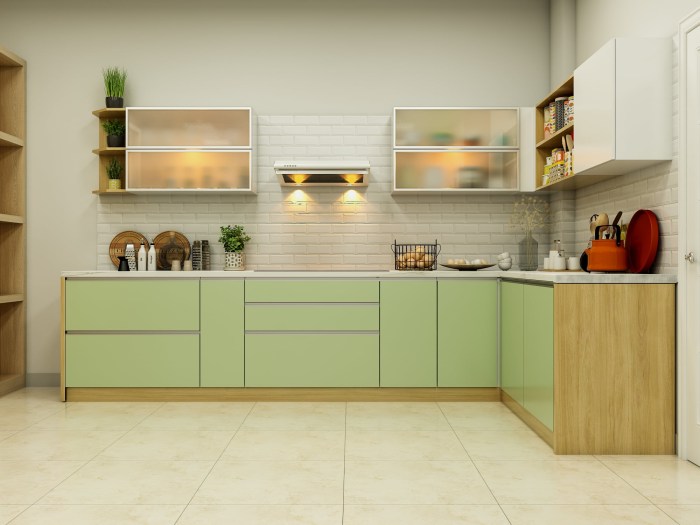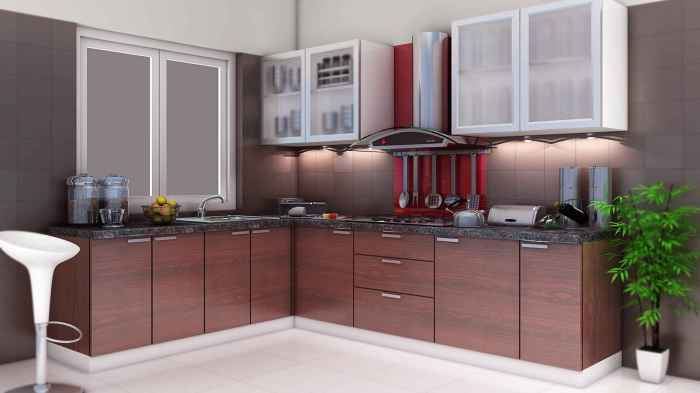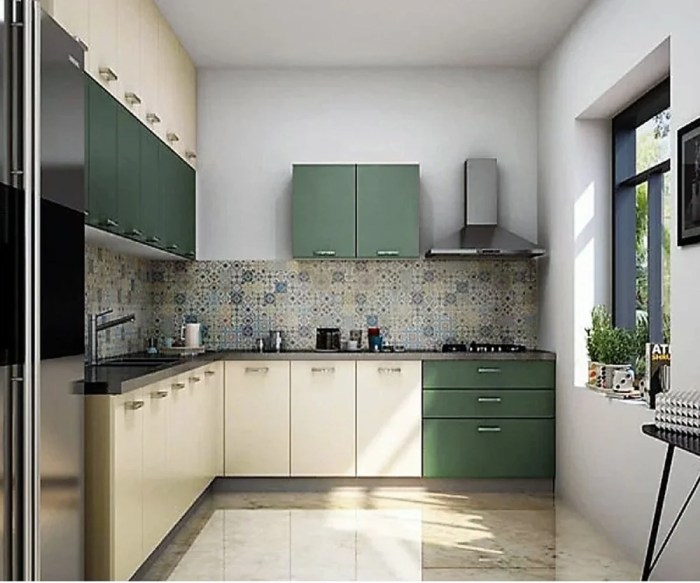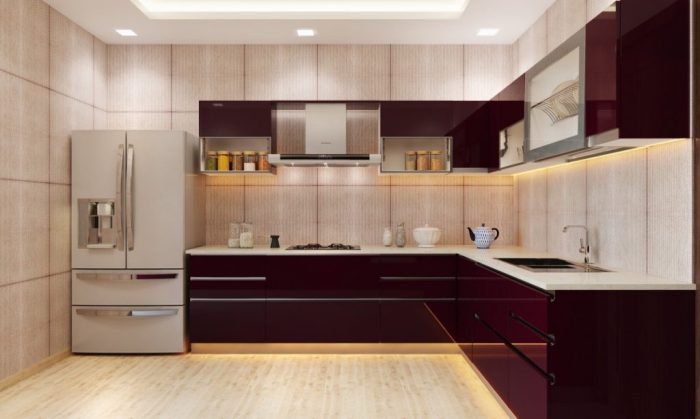Tips for Designing a Modular Kitchen That’s Ideal for Work-From-Home Professionals sets the stage for this enthralling narrative, offering readers a glimpse into a story that is rich in detail and brimming with originality from the outset. With the rise of remote work, our kitchens have transformed into multifunctional spaces that demand both functionality and style.
This comprehensive guide delves into the essential elements of designing a modular kitchen that seamlessly integrates your workspace, providing a haven of productivity and inspiration.
From space optimization techniques to ergonomic considerations, functional zones to smart technology integration, and aesthetic appeal, this guide covers every aspect of creating a kitchen that empowers work-from-home professionals to thrive. Prepare to embark on a journey of kitchen transformation as we explore the art of designing a modular kitchen that perfectly aligns with your work-from-home lifestyle.
Space Optimization
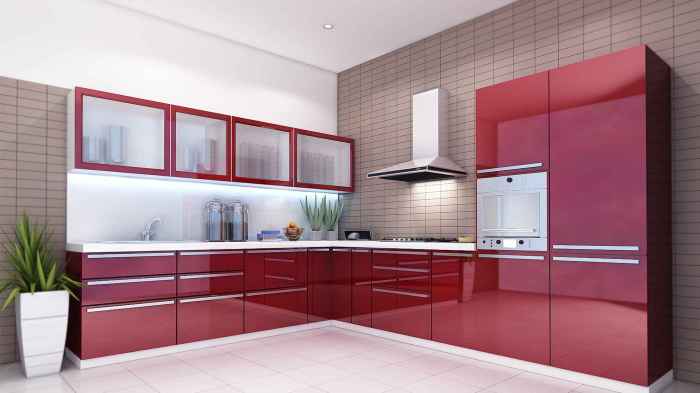
Optimizing space is crucial in designing a modular kitchen that caters to work-from-home professionals. A well-organized kitchen not only enhances productivity but also creates a clutter-free and efficient workspace.
To achieve optimal space utilization, consider the following strategies:
Designate Specific Work Areas
Establish dedicated zones for different kitchen activities. Designate a specific area for meal preparation, another for dishwashing, and a third for storage. This organization helps streamline tasks and reduces unnecessary movement.
Provide Ample Storage Solutions
Incorporate ample storage solutions to keep clutter at bay. Utilize drawers, cabinets, and shelves to store utensils, appliances, and ingredients. Choose storage options with adjustable shelves or dividers to accommodate items of varying sizes.
Incorporate Vertical Storage Options
Make the most of vertical space by installing wall-mounted shelves, pegboards, or magnetic strips. These options allow you to store items vertically, freeing up valuable counter space and creating a more spacious feel.
Ergonomic Design
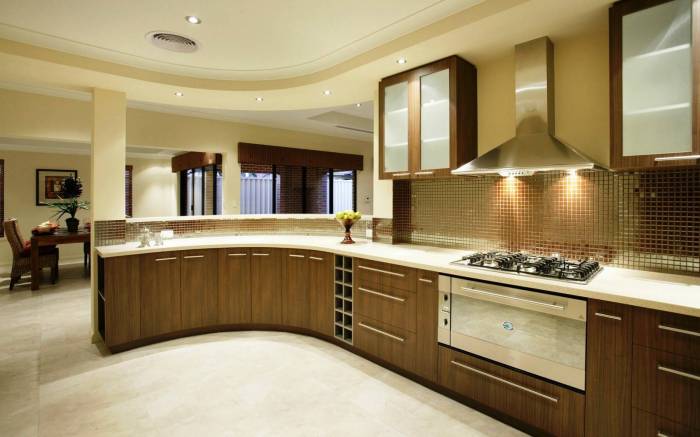
For a productive work-from-home experience, prioritizing ergonomic design is essential. This involves creating a workspace that promotes comfort, reduces physical strain, and enhances productivity.
To achieve ergonomic excellence, consider the following tips:
Adjustable Furniture
- Invest in adjustable chairs and desks that allow you to customize the height and angle to suit your body’s dimensions.
- Adjustable furniture empowers you to find the optimal posture for extended work sessions, preventing discomfort and musculoskeletal issues.
Proper Lighting
- Ensure adequate natural lighting by positioning your workspace near a window.
- Supplement with artificial lighting, such as adjustable desk lamps, to avoid eye strain and headaches.
- Proper lighting reduces glare and ensures optimal visibility, promoting comfort and focus.
Ergonomic Features
- Incorporate anti-fatigue mats to reduce strain on your feet and legs during prolonged standing.
- Utilize wrist rests to support your wrists and prevent discomfort while typing.
- These ergonomic features enhance comfort, minimize physical stress, and promote overall well-being.
Functional Zones
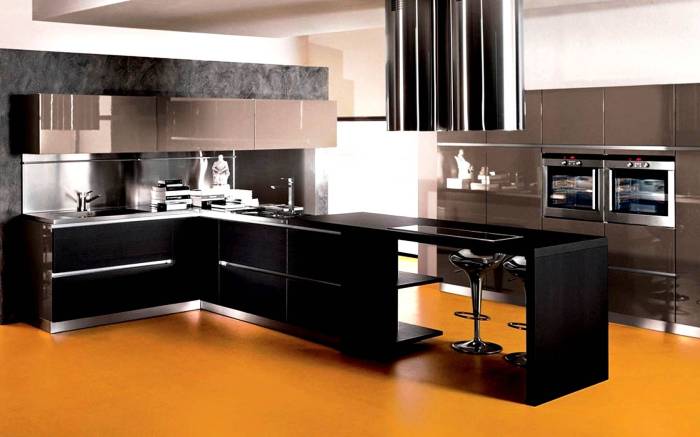
In a modular kitchen designed for work-from-home professionals, it’s crucial to establish separate zones for different activities to maximize efficiency and comfort.
Creating a dedicated workspace ensures that all necessary equipment and materials are within easy reach, allowing for seamless workflow. Additionally, designating a comfortable seating area provides a space for breaks, informal meetings, or quick relaxation.
Workspace
- Position the workspace near a window for natural light and ventilation.
- Choose a desk that provides ample surface area for equipment and paperwork.
- Ensure adequate storage options, such as shelves, drawers, or cabinets, to keep essential items organized.
- Consider incorporating ergonomic features, such as an adjustable chair and keyboard tray, to promote comfort during extended work sessions.
Storage
- Maximize vertical space by installing tall cabinets and shelves.
- Use drawer dividers and organizers to keep items separated and easily accessible.
- Consider adding a pantry or dedicated storage area for bulk items and appliances.
Relaxation
- Create a cozy seating area with comfortable chairs or a small sofa.
- Add plants or artwork to bring a touch of nature and inspiration to the space.
- Consider incorporating a small coffee table or side table for convenience.
Smart Technology Integration
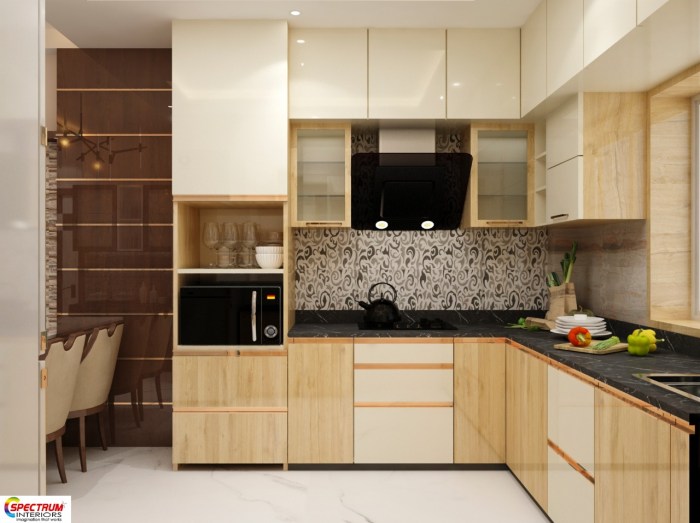
In today’s work-from-home era, integrating smart technology into your modular kitchen can revolutionize your productivity and convenience. Smart appliances, voice-activated controls, and intelligent lighting systems can streamline daily tasks, enhance functionality, and create a more efficient workspace.
Smart Appliances
Outfit your kitchen with smart appliances like refrigerators that track inventory, suggest recipes, and order groceries automatically. Ovens and dishwashers with built-in Wi-Fi connectivity allow you to monitor progress remotely, adjust settings, and receive notifications when cycles are complete. These smart features save time and effort, allowing you to focus on your work.
Voice-Activated Controls
Hands-free operation is essential for multitasking in the kitchen. Install voice-activated controls that enable you to operate appliances, adjust lighting, and play music simply by speaking. This seamless integration minimizes distractions and allows you to work uninterrupted.
Smart Lighting Systems
Proper lighting is crucial for productivity and well-being. Consider installing smart lighting systems that adjust ambiance and brightness based on the time of day or your preferences. Tunable white lighting can mimic natural daylight, reducing eye strain and enhancing focus.
Aesthetic Appeal
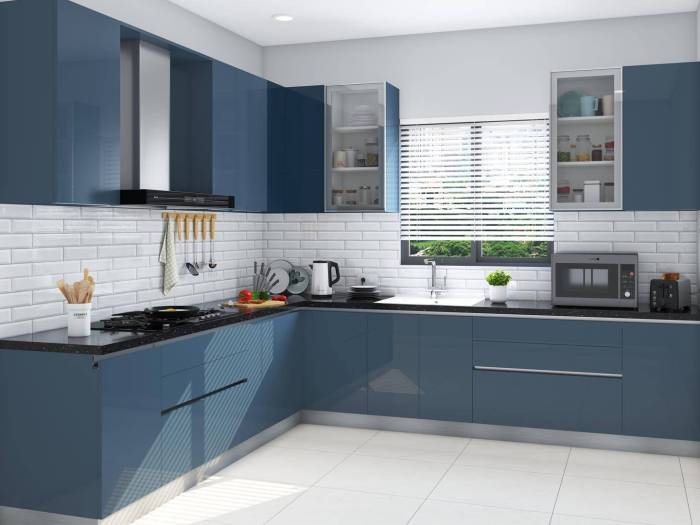
A visually appealing and inspiring workspace can significantly boost productivity and creativity. When designing your modular kitchen for work-from-home purposes, consider incorporating the following aesthetic elements:
Choose a cohesive design theme:Select a design style that complements your personal taste and the overall décor of your home. A consistent theme will create a harmonious and inviting workspace.
Incorporate Natural Elements
Bringing natural elements into your kitchen can enhance well-being and create a sense of tranquility. Consider adding plants to purify the air and provide a touch of greenery. Incorporate wooden elements, such as countertops or cabinetry, to add warmth and a natural aesthetic.
Personalize the Space, Tips for Designing a Modular Kitchen That’s Ideal for Work-From-Home Professionals
Make your kitchen workspace a reflection of your style and personality by adding personal touches. Display artwork that inspires you or hang photos of loved ones. Incorporate accessories, such as a colorful vase or a unique lamp, to add character and create a comfortable atmosphere.
Last Word: Tips For Designing A Modular Kitchen That’s Ideal For Work-From-Home Professionals
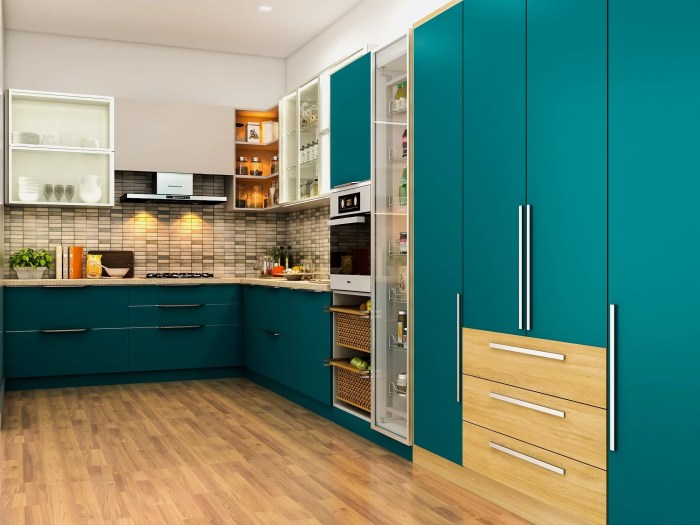
As you embark on the journey of designing your ideal modular kitchen, remember that the key lies in creating a space that seamlessly blends functionality, comfort, and inspiration. By implementing the tips Artikeld in this guide, you can transform your kitchen into a haven of productivity and well-being, empowering you to excel in your work-from-home endeavors.
Embrace the principles of space optimization, ergonomic design, functional zones, smart technology integration, and aesthetic appeal, and watch your kitchen evolve into a space that fuels your success and ignites your creativity.
Answers to Common Questions
What are the key considerations for designing a modular kitchen for work-from-home professionals?
Space optimization, ergonomic design, functional zones, smart technology integration, and aesthetic appeal are the fundamental pillars to consider when designing a modular kitchen for work-from-home professionals.
How can I maximize space in my modular kitchen?
Designate specific work areas, incorporate vertical storage solutions, and utilize drawer organizers to optimize space in your modular kitchen.
What ergonomic features should I include in my modular kitchen?
Adjustable furniture, proper lighting, anti-fatigue mats, and wrist rests are essential ergonomic features to incorporate into your modular kitchen.
